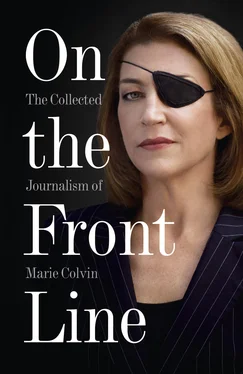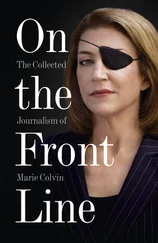1 ...8 9 10 12 13 14 ...25 After seeing Hussein in the souk hours before the deadline expired, I went into the Al-wiyah club with Falah, an Iraqi businessman. It is a former British club now frequented by Iraq’s elite, a place of contrasts. A huge Saddam portrait greets arrivals in the club car park, but members still leave their own private bottles of whisky behind the bar, their names printed on them, in the old British club tradition. We were the only customers, but there was still food, some salads and chicken.
Falah spoke over dinner about statistics, trying to put on a brave face that Iraq would somehow continue. He had been helping as a consultant to the government in what he called ‘food security’ since the crisis began. He had managed to cut sugar consumption by 60% by closing down ice-cream and confectionery shops; Iraq was now making its own liquid sugar from dates. Farmers had had to kill most of Iraq’s chickens because of the shortage of grain, but cows had been switched to grass and still gave milk. Wheat was a problem; Iraq produced 4 million tons annually and consumed 6.5 million but increased subsidies for farmers would make up much of the shortage. Meanwhile, rationing filled the gap: his office had made charts of human consumption, added 20% and produced rationing amounts and distributed coupons.
Such statistics are usually impossible to come by; but I had barely the energy to commit them to memory (you don’t take notes in public in Iraq). Falah relaxed, dropped his beloved subject and lapsed into tales of his childhood.
The club was significant to him and to the current situation. He had come here first as a young and proud university student, the first Arab of his generation to visit it, brought by a British professor as a reward for being number one in his class. ‘You realise for us this is much more than a war between Iraq and America. For us, even for the Arabs who are not with Saddam, it is a struggle for our dignity. The West has humiliated us and we see Saddam as a leader who has finally stood up to the West and said we want our dignity.’
On the way home, I went by the French embassy where André Jenier, the last western diplomat in Baghdad, was preparing to leave in proper French style. He had laid out the embassy’s last French cheeses, pâtés and salamis and served champagne until midnight, when he and his few remaining staff clambered into their cars and drove through the night to the Jordanian border.
At the Hotel Palestine, previously the Meridian but now rundown and shabby after a change from French to Iraqi ownership at the start of the economic embargo five months ago, I stopped at a ‘challenge the deadline’ celebration, an Iraqi version of an end-of-the-world party.
Kadum Al-Sahir, a popular singer, was on the floor amid a group of men who danced and waved Iraqi flags. But most of the rest of the hall was filled with sombre beer drinkers, sitting at their tables without much enthusiasm. Most were government recruits; the only guests who seemed to have paid the 20 dinar ($35) entry price were 10 Palestinians who had come in a delegation from Jordan to show solidarity with Iraq. A wedding party had been recruited to build up the numbers.
I went to bed in my room at the Rashid hotel and waited for the worst.
The Americans had announced that the deadline would fall at midnight New York time, 8am local time next day, Wednesday the 16th. When I woke, a heavy fog had settled across the flat city. For a moment, looking out of the hotel window, unable to see anything but white mist obscuring the skyline, I thought perhaps the attack had come and I had slept through it.
Downstairs, among the government ‘minders’ who watched the comings and goings of the few of the 40 or so journalists left at the Rashid hotel, there was premature euphoria. ‘You see, I told you there would not be war,’ said Karim, one of the men from the information ministry.
Baghdad thought otherwise. Driving around town, I saw only a few knots of men in quiet discussions. Rashid Street, the main thoroughfare, lined with colonnaded mock-Ottoman buildings from the 1930s, was usually packed with cars. Instead, it was a wide deserted avenue at 9am.
Windows were taped over against bombs for the first time. The Mandarin restaurant on Karada Street, once Baghdad’s busiest fast-food joint but closed for months because of a ban on serving meals, had its wide windows taped in large Xs. At the Shorjah souk, Baghdad’s most popular market because of its cheap clothing, household items and canned goods, only four of the 200 stores had opened. One man, hanging up flannel robes from the ceiling of his shop, said: ‘We will open for an hour. If it stays like this, we will close.’ Schools had opened, but with few teachers and fewer students they quickly closed for the day.
There was no sign of backing off by Saddam. The headline of the government newspaper, Al-Jumhuriya, said: ‘We shall never compromise on Iraqi and Arab rights.’ Midday television news showed perhaps the unluckiest people in the world that day: 177 former prisoners of war descending from an Iraqi Airways flight to Baghdad after years of captivity in Iran.
Sources were fast disappearing. I telephoned the foreign ministry to try to see Nizar Hamdoun, the under-secretary. But the ministry’s number had changed and its officials had moved to a new location. The last time I had seen Hamdoun, he was sitting in his office, morosely watching CNN television. ‘I feel like I’m watching a bad fiction movie,’ he had said.
During his tenure as Iraqi ambassador to Washington, Hamdoun had been the architect of the Iraqi–American rapprochement of the 1980s. He still felt Iraq could be America’s best ally in the Middle East. It was the only local power able to enforce stability in the region under Bush’s new world order; it had oil America needed; it was a potentially wealthy market; and it would guarantee American interests. But by 16 January 1991, policy was long out of the hands of thoughtful diplomats such as Hamdoun.
At the ministry of information that evening, the receptionist at the office of Naji Hadithi, the director-general, was watching cartoons. Inside, Hadithi and I watched a film showing Saddam visiting troops in Kuwait. The president looked confident as he had in every appearance that week, although rather awkward as he sat wrapped in a huge greatcoat with troops who looked terrified by his presence. He asked them oddly personal questions. ‘Have you had your dinner?’ he said to one. A long pause … ‘Is this place warm?’ he said to another.
Hadithi switched to CNN and we watched a demonstration of allied fire control in Dhahran, where Saudi, American and British forces are based. A lieutenant-commander was interviewed, saying his men were prepared. Hadithi commented: ‘The only thing missing from this is reality.’
He meant on the allied side. It was a cherished belief of many Iraqis I spoke to, even those who were desperate to avoid war, that if it came to a battle, Iraqi soldiers, hardened in the war against Iran, would defeat their better armed but inexperienced enemy.
As Wednesday evening drew on, Marlin Fitzwater, Bush’s spokesman, caused the first real worry among the foreign press corps. He said any journalists in Baghdad were in danger and should leave immediately. All American print reporters had left on the 14th, but the American television networks remained. Now they started getting prearranged signals from Pentagon sources that an attack was imminent.
Larry Doyle of CBS received the message: ‘Your family is fine but your children have colds.’ Doyle, a veteran journalist who reported on the Vietnam war, put down the phone and said simply: ‘Shit.’
A delegation of journalists hurried to Hadithi’s office. Some wanted to move out of the Rashid hotel, located in central Baghdad near most of the ministries and the presidential palace, all obvious targets for attack. But Hadithi said: ‘We are still here. Our ministry is a dangerous place and yet we did not evacuate.’
Читать дальше












